There were many types of dresses in the 18th century. The Robe a la Francaise, the Robe à la Polonaise and the Robe à l'Anglaise are just some examples of the most popular and historical dresses of that era. Because of their sumptuousness these fashionable dresses were worn in more formal occasions.
Anna Maria is wearing a Round Gown, a dress style that become very popular in the late 18th century (1770's -1790's) Although it was considered a day dress, it was also worn for some formal occasions. I have posted several photos for you to see step-by-step how I have dressed her and all the details of this doll.
If you are interested in purchasing her, please contact me at: soniakrausedolls@gmail.com
SOLD
12" wooden pandora doll. Her entire body is made of wood, except for her cloth upper arms. She has beautiful antique glass eyes; her wig is made of antique mohair in a lovely dark brown color.
Anna Maria's haute-couture fashions and accessories
In the 18th century the shift served two purposes: it was worn as an underwear and a nightgown. Anna Maria is wearing a cotton shift, knee-length, it will protect her clothing from the body moisture and also from the roughness of some elaborate textiles, especially the ones made with metallic threads.
Dainty antique French silk ribbons are tied around her legs, just above the knees, to hold up her cotton stockings. This beautiful diminutive silk ribbon was made for AU BON MARCHE Department Store in Paris, France around 1890.
In the 18th century stays were commonly laced at the back or laced at the front and back. My doll's stays are made of a beautiful Victorian blue striped silk, and these are front and back lacing.
The bum roll makes a great understructure to achieve the fashionable 18th century silhouette
Cloth pocket: 19th century French silk embroidery
The dress has a front closure bodice, the back of the bodice is sewn to the back portion of the skirt. A feature that distinguished it from its predecessors is that the skirt front is a drop panel sewn to two tapes which ties around the waist (like an apron).
Her gown is made of a 19th century French block printed textile, lovely floral pattern in small scale.
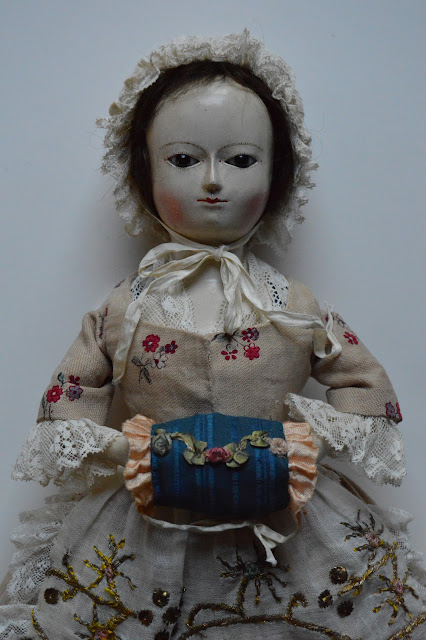






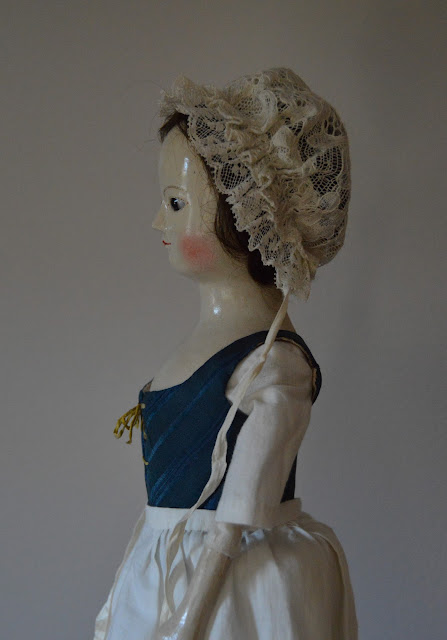


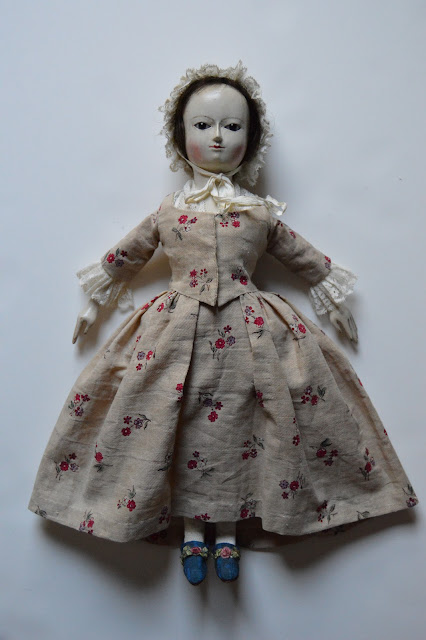
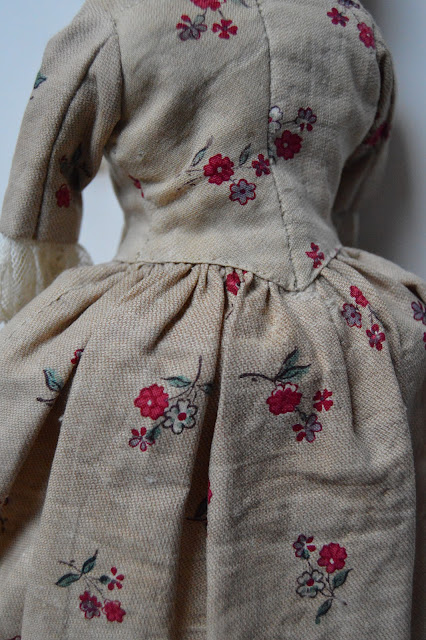
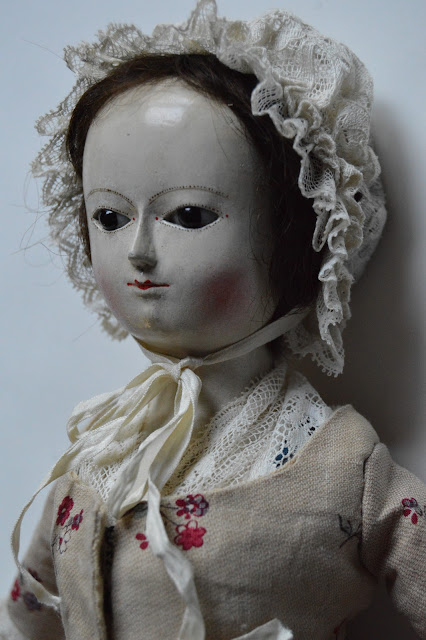
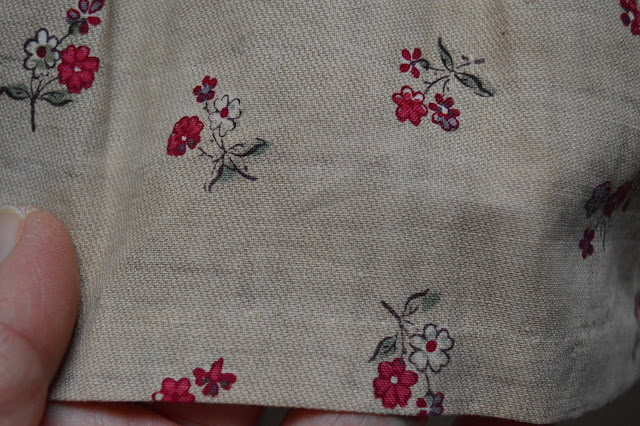






No comments:
Post a Comment